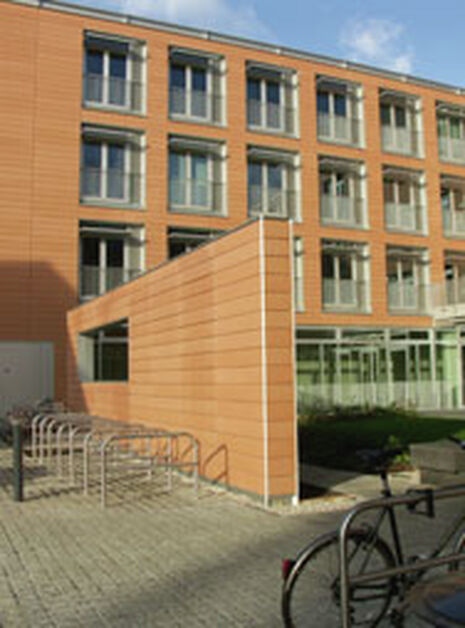Reading: Spring Soundings New Cambridge Writers
Charlotte Keith has an implausibly uplifting evening in the big black cube of the Judith E Wilson Drama Studio

‘Why, hedgehog????’. Yes, that’s a shameless in-joke aimed at anyone who attended this event. We lucky few were treated to an array of the best new student writing Cambridge has to offer. The Judith E Wilson drama studio is not usually a space which takes much notice of the changing seasons, but a pot of daffodils behind the microphone assured everyone who had braved the cold to be there that spring is, in fact, on the way.
The sheer variety of the work on offer here was incredible: Debbie Potts read her translation from Icelandic poetry, Luke McMullan, from Mayakovsky and Rilke, reading his own and Sophie Seita’s translations of the first of the ‘Sonnets to Orpheus’, a reminder to anyone jaded from too many vocab lists and grammar paradigms quite how dynamic translation can be.

I didn’t ‘like’ (in the conventional sense of the word) everything that was read – and that’s part of the point, because with work this fresh, you should expect to be startled and taken aback at times. David Grundy read a long sequence reflecting on the summer’s riots: “There are hateful things we make do with,” he said, crescendo-ing into a torrent of furious words and images. Phoebe Power and Rowan Evans created moments of lyrical calm and formal mastery. Felix Bazalgette was very funny, reading a short story about a world where the works of Camus survive only in his memory: “I’m like Denzel Washington’s fuck-up little brother or something” (that’s a reference to the shit film The Book of Eli. If you believe Bazalgette, don’t watch it). And James Coghill, he of the introductory hedgehog-anecdote, confessed his interest in “the poetics of cute”: “one of my long-term concerns is animals that are adorable”. Jack Belloli described his work as “about being silly and precocious and easily influenced”, but that very precocity, very much in evidence tonight, was seriously impressive.
The joy – the privilege, even – of going to a reading like this is the glorious provisionality, and fragility of the writing: this is often work in progress, from writers who are developing and improving all the time. Some of this stuff might never see the light of day again. Some of it is already in print and online at various places. Some will hopefully go on to be published. In addition to the intimacy of hearing something in the writer’s own voice, the fluidity of this kind of work is exhilarating. The moment of reading, you are made to feel, matters very much.
Tim Waters, president of the English Society, read poems written that very day, offering a quirky chart of his day, from the 2am session spent drinking sugary coffee and listening to Mozart, to awkwardly catching the eyes of a stranger in the UL. He finished with some prose that closed proceedings wonderfully:"I stand here, less myself than ever, and it’s beautiful". This event was beautiful – and weird, and disconcerting, and uplifting. Because it’s always good to know that despite the pressures of Cambridge life, really, really good writing is quietly – or, in this case, not so quietly – going on all the time.
 News / Cambridge study finds students learn better with notes than AI13 December 2025
News / Cambridge study finds students learn better with notes than AI13 December 2025 News / Cambridge Vet School gets lifeline year to stay accredited28 November 2025
News / Cambridge Vet School gets lifeline year to stay accredited28 November 2025 Science / Did your ex trip on King’s Parade? The science behind the ‘ick’12 December 2025
Science / Did your ex trip on King’s Parade? The science behind the ‘ick’12 December 2025 News / Uni Scout and Guide Club affirms trans inclusion 12 December 2025
News / Uni Scout and Guide Club affirms trans inclusion 12 December 2025 Arts / Modern Modernist Centenary: T. S. Eliot13 December 2025
Arts / Modern Modernist Centenary: T. S. Eliot13 December 2025







